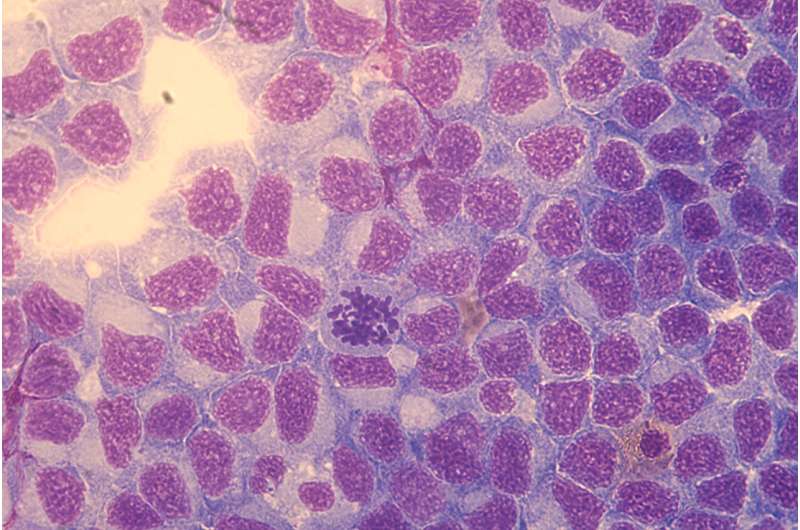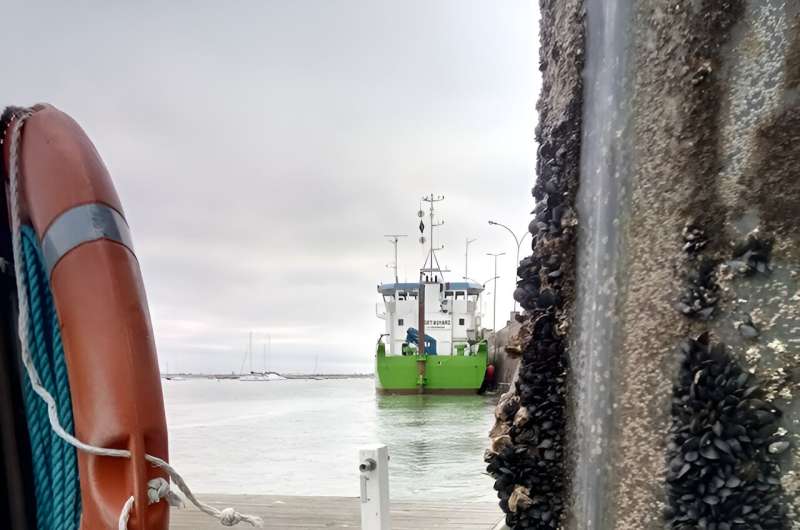
Seaports act as hubs for the global spread of MtrBTN2, a rare contagious cancer affecting mussels. In this disease, cancer cells can be transmitted, like parasites, from one mussel to another nearby.
While, in nature, such contagion mainly occurs between mussels in the same bed, ports and maritime transport facilitate the spread of MtrBTN2 to other locations, through biofouling, whereby diseased mussels attach themselves to ship hulls.
This finding, the fruit of research by a team led by scientists from the CNRS and the University of Montpellier, was published in Proceedings of the Royal Society B on February 21.

Higher incidence of the disease in ports was noted after studying 76 mussel populations along the coast of southern Brittany and the Vendée, within both natural and artificial habitats.
The research team asserts that their discovery argues in favor of biofouling mitigation policies, to stem the spread of the disease and preserve coastal ecosystems.
More information:
M. Hammel et al, Marine transmissible cancer navigates urbanized waters, threatening spillover, Proceedings of the Royal Society B: Biological Sciences (2024). DOI: 10.1098/rspb.2023.2541
Citation:
Seaports found to be hotspots of contagious cancer in mussels (2024, February 21)
retrieved 21 February 2024
from https://phys.org/news/2024-02-seaports-hotspots-contagious-cancer-mussels.html
This document is subject to copyright. Apart from any fair dealing for the purpose of private study or research, no
part may be reproduced without the written permission. The content is provided for information purposes only.







